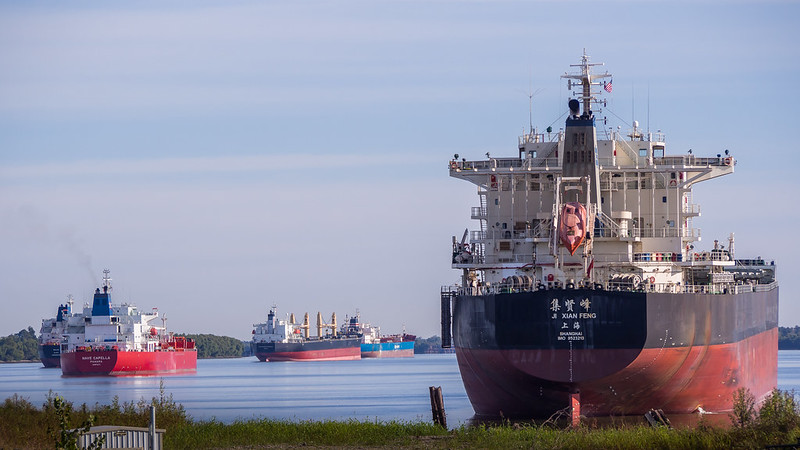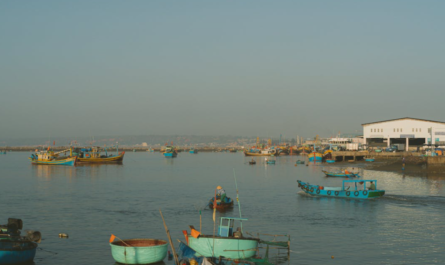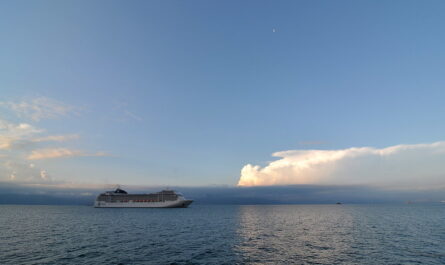The Atlantic Ocean has been the stage for some of the most transformative events in human history. Over centuries, it facilitated the rise of maritime empires, enabled colonization, and became the backbone of global trade networks that shaped the modern world. From the Age of Exploration to the industrial revolution, the Atlantic served as a critical corridor connecting continents, economies, and cultures.
This article explores the development of maritime empires in the Atlantic, the dynamics of colonization, the rise of global trade, and their enduring impacts on the world today.
The Age of Exploration: Setting the Stage for Maritime Empires
1. Technological Innovations
The Age of Exploration, beginning in the late 15th century, was driven by advancements in navigation and shipbuilding.
- Navigational Tools: The invention of the astrolabe and improvements in cartography allowed explorers to traverse the Atlantic with greater accuracy.
- Ship Design: Caravels and galleons, equipped with lateen sails and sturdy hulls, were designed to endure long transoceanic voyages.
2. Key Explorations
The Atlantic became a gateway for European powers seeking new trade routes, resources, and territories.
- Christopher Columbus (1492): Sponsored by Spain, Columbus’s voyage to the Americas marked the beginning of European colonization.
- John Cabot (1497): Explored North America’s eastern coast under the English flag, setting the stage for British territorial claims.
- Vasco da Gama (1497-1499): Though primarily focused on reaching India, Portuguese navigators explored West Africa and established key Atlantic trade routes.
3. The Treaty of Tordesillas (1494)
This agreement between Spain and Portugal divided the newly discovered lands outside Europe, formalizing their dominance over the Atlantic.
The Rise of Maritime Empires
1. Spain: The First Global Empire
Spain’s maritime empire spanned vast territories in the Americas, the Caribbean, and beyond.
- Colonization of the Americas: Conquistadors such as Hernán Cortés and Francisco Pizarro led campaigns to conquer the Aztec and Inca empires, claiming immense wealth for Spain.
- Economic Impact: The influx of silver and gold from the Americas fueled Spanish dominance in Europe and global markets.
2. Portugal: Masters of the Atlantic and Beyond
Portugal established key Atlantic outposts and dominated early maritime trade.
- African Trade Routes: Portuguese explorers established trading posts along West Africa, dealing in gold, ivory, and slaves.
- Brazil: Portugal’s largest colony in the Americas became a hub for sugar plantations and Atlantic trade.
3. Britain: The Colonial Juggernaut
Britain’s maritime empire expanded aggressively in the 17th and 18th centuries, focusing on North America, the Caribbean, and later Africa.
- Economic Base: Colonies produced raw materials such as tobacco, sugar, and cotton, fueling Britain’s industrial revolution.
- Naval Supremacy: The Royal Navy ensured British dominance over Atlantic trade routes.
4. France: Rivals in Empire Building
France competed fiercely with Britain and Spain for control of Atlantic territories.
- Caribbean Colonies: French colonies like Saint-Domingue (modern-day Haiti) became the world’s largest producers of sugar.
- North America: French influence extended through Canada and the Mississippi River Valley.
5. The Dutch: A Commercial Powerhouse
The Dutch maritime empire, though smaller in territorial reach, dominated global trade.
- Dutch West India Company: Played a crucial role in the Atlantic slave trade and the establishment of colonies in the Caribbean and South America.
- Innovations: Amsterdam became a global financial center, pioneering stock exchanges and modern banking.
Colonization and Its Consequences
1. The Columbian Exchange
The Columbian Exchange transformed the Atlantic world by introducing new crops, animals, and diseases.
- Crops: Corn, potatoes, and tobacco from the Americas revolutionized European diets, while wheat and sugarcane flourished in the New World.
- Diseases: European diseases such as smallpox decimated indigenous populations, leading to demographic and cultural upheavals.
2. The Transatlantic Slave Trade
One of the darkest chapters of Atlantic history, the slave trade forcibly transported millions of Africans to the Americas.
- The Middle Passage: Enslaved Africans endured horrific conditions during the voyage across the Atlantic.
- Economic Impact: Slave labor was integral to the production of sugar, cotton, and other cash crops in the Americas.
3. Cultural Assimilation and Resistance
Colonization led to the blending of cultures but also sparked resistance and revolutions.
- Cultural Exchange: African, European, and Indigenous traditions merged, creating unique identities in the Americas.
- Revolutions: Movements like the Haitian Revolution and the American Revolution challenged colonial powers.
The Atlantic as a Trade Corridor
1. Triangular Trade
The Atlantic triangular trade linked Europe, Africa, and the Americas in a complex network of goods, people, and wealth.
- Europe to Africa: Manufactured goods, such as firearms and textiles, were traded for enslaved people.
- Africa to the Americas: The infamous Middle Passage transported slaves to work on plantations.
- Americas to Europe: Raw materials like sugar, tobacco, and cotton were shipped back to European markets.
2. The Sugar Economy
Sugar plantations in the Caribbean drove the Atlantic economy, with high demand in Europe fueling the brutal labor systems of slavery.
3. Maritime Technology and Logistics
Advances in shipbuilding, navigation, and logistics streamlined transatlantic trade, making it more efficient and profitable.
The Decline of Maritime Empires
1. Economic Shifts
The Industrial Revolution and the rise of new trade routes, such as the Suez Canal, reduced the importance of Atlantic maritime empires.
- Manufacturing Economies: European powers shifted focus from colonial raw materials to industrial production.
- Global Trade Networks: The Atlantic remained important but faced competition from the Pacific and Indian Oceans.
2. Revolutions and Independence Movements
Colonial subjects across the Americas and the Caribbean fought for independence, ending centuries of European dominance.
- American Revolution (1775–1783): Marked the birth of the United States and inspired other movements.
- Haitian Revolution (1791–1804): Led to the establishment of the first independent black republic.
3. Abolition of the Slave Trade
The abolition of the transatlantic slave trade in the 19th century marked a turning point in the Atlantic economy.
- Legislation: Britain outlawed the slave trade in 1807, followed by other nations.
- Economic Impact: Plantations shifted to wage labor systems, altering Atlantic trade dynamics.
Legacy of Atlantic Maritime Empires
1. Economic Globalization
The trade networks established by Atlantic maritime empires laid the foundation for modern global commerce.
- Capitalism: The profits generated from Atlantic trade fueled the growth of capitalist economies.
- Infrastructure: Ports, shipping routes, and financial institutions established during the colonial era remain critical today.
2. Cultural Exchange
The Atlantic served as a melting pot, blending diverse cultures and shaping modern identities.
- Music and Art: Genres like jazz, samba, and calypso reflect the cultural fusion of the Atlantic world.
- Language and Religion: Colonial languages and religions spread across continents, creating lasting legacies.
3. Geopolitical Shifts
The rise and fall of maritime empires reshaped global power structures, influencing the modern geopolitical landscape.
- European Hegemony: Maritime empires established Europe as the dominant global force for centuries.
- Post-Colonial States: Former colonies continue to grapple with the economic and social legacies of colonization.
Conclusion: The Atlantic’s Enduring Influence
The maritime empires of the Atlantic fundamentally reshaped the world, forging connections between continents that persist to this day. While their legacy is marked by exploitation and conflict, it also highlights humanity’s capacity for innovation, adaptation, and cultural exchange.
Understanding the history of these empires is crucial to addressing the challenges of the modern Atlantic world, from economic inequality to cultural preservation. As we navigate the 21st century, the Atlantic continues to serve as a bridge between nations, a reminder of our shared past, and a beacon for a more interconnected future.



